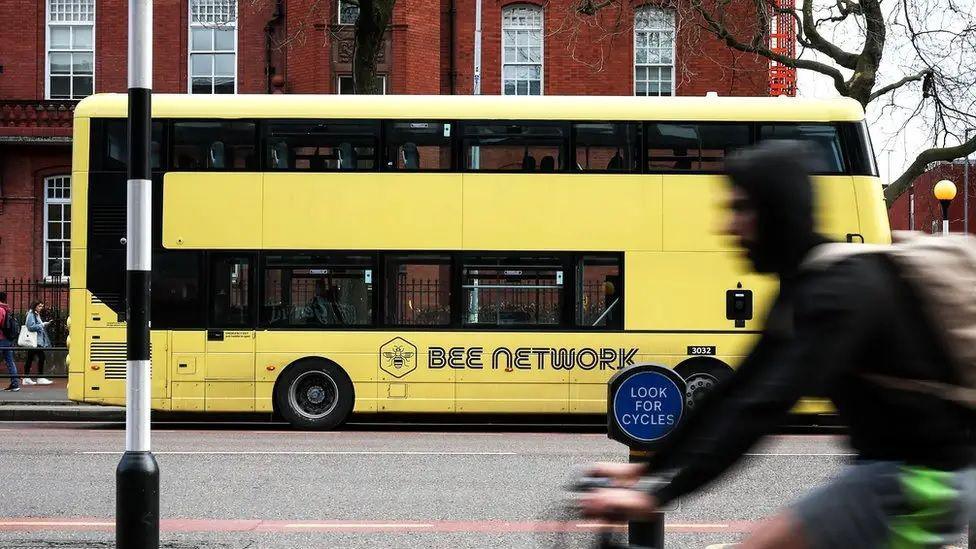Expanded bus network sees 100 new drivers trained
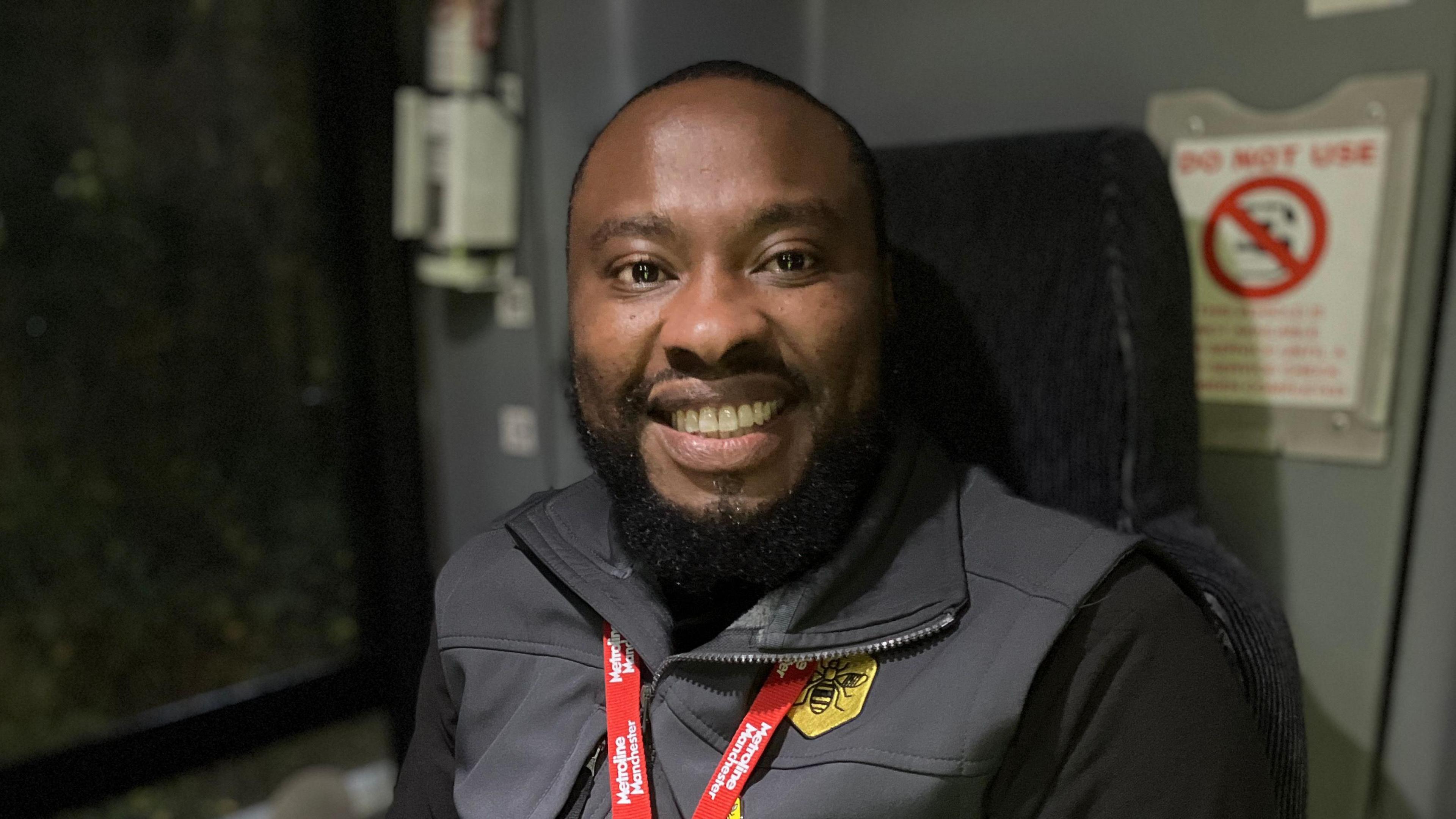
New driver Pepu Kayinari said he was excited to serve the community
- Published
More than 100 new bus drivers have been trained ahead of the rollout of the final stage of Greater Manchester's Bee Network.
From 5 January, when the remainder of the city region's bus network comes back under public control, they will be driving the distinctive yellow buses.
The first phase of the Bee Network - in Bolton and Wigan - suffered some teething problems last year due to a shortage of drivers.
Greater Manchester Mayor Andy Burnham said: "We are in the strongest position by far in this change."
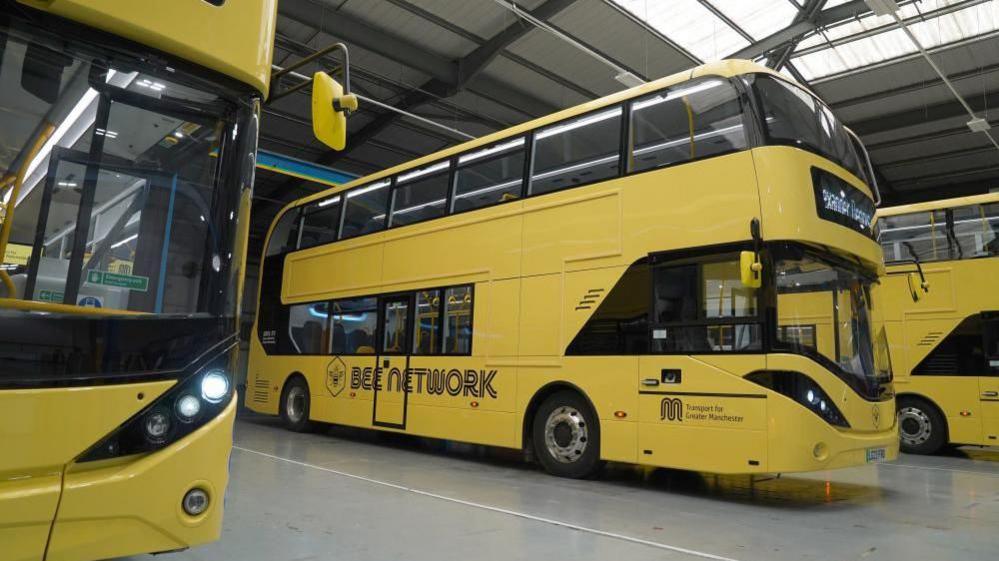
The new drivers will hit the roads of Greater Manchester in the new year
Metroline Manchester will run a franchise responsible for 250 routes across Stockport, Tameside, Trafford and parts of Manchester and Salford.
It will account for more than half of Greater Manchester's bus network.
There will be 330 new buses, many of them electric.
Metroline Manchester has recruited 130 new drivers as well as 45 support and enforcement officers.
One of its news drivers will be Pepu Kayinari.
The 41-year-old was the first of his group to pass his driving exams after months of training at the Sharston depot in Wythenshawe.
He said: "I've driven a small car before but with a bus it's different!
"The anxiety is that it's the first time you'll be on your own on the road.
"The excitement [is about] serving the community and also doing a career you enjoy."
'Unreliable'
Greater Manchester also plans to add eight local railway lines to the Bee Network by 2028.
Mr Burnham said: "Next year will be one of real change for Greater Manchester, as we encourage even more people onto public transport to build a low-cost, high patronage network.
"But we're not stopping at buses – we want to do more. Our unreliable rail services are a brake on growth and we deserve better.
"By bringing them into the Bee Network we can deliver real change for our residents, increasing reliability and ultimately getting more people out of their cars on to public transport."
Related topics
More like this story
- Published31 October 2024
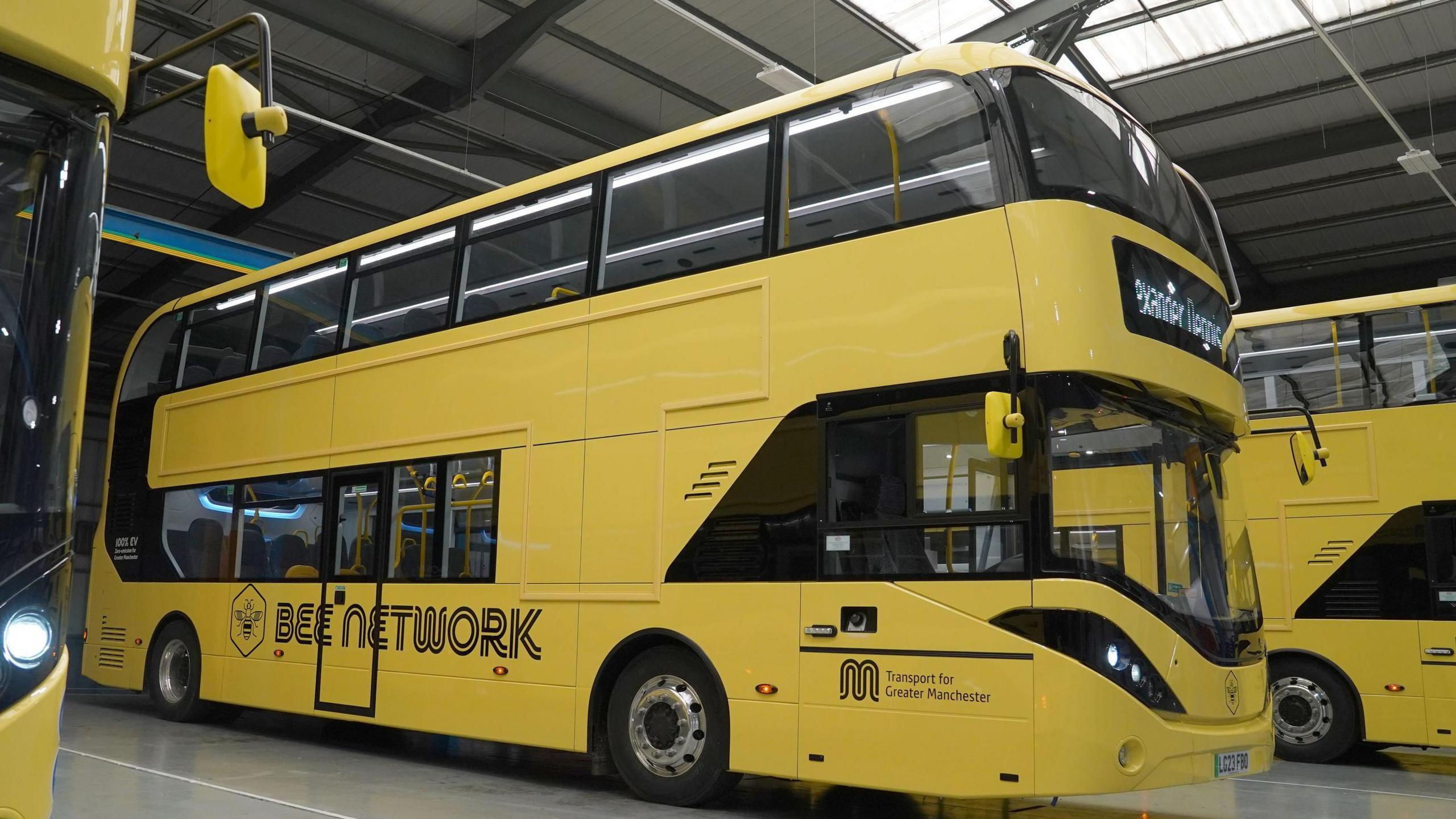
- Published30 November 2024
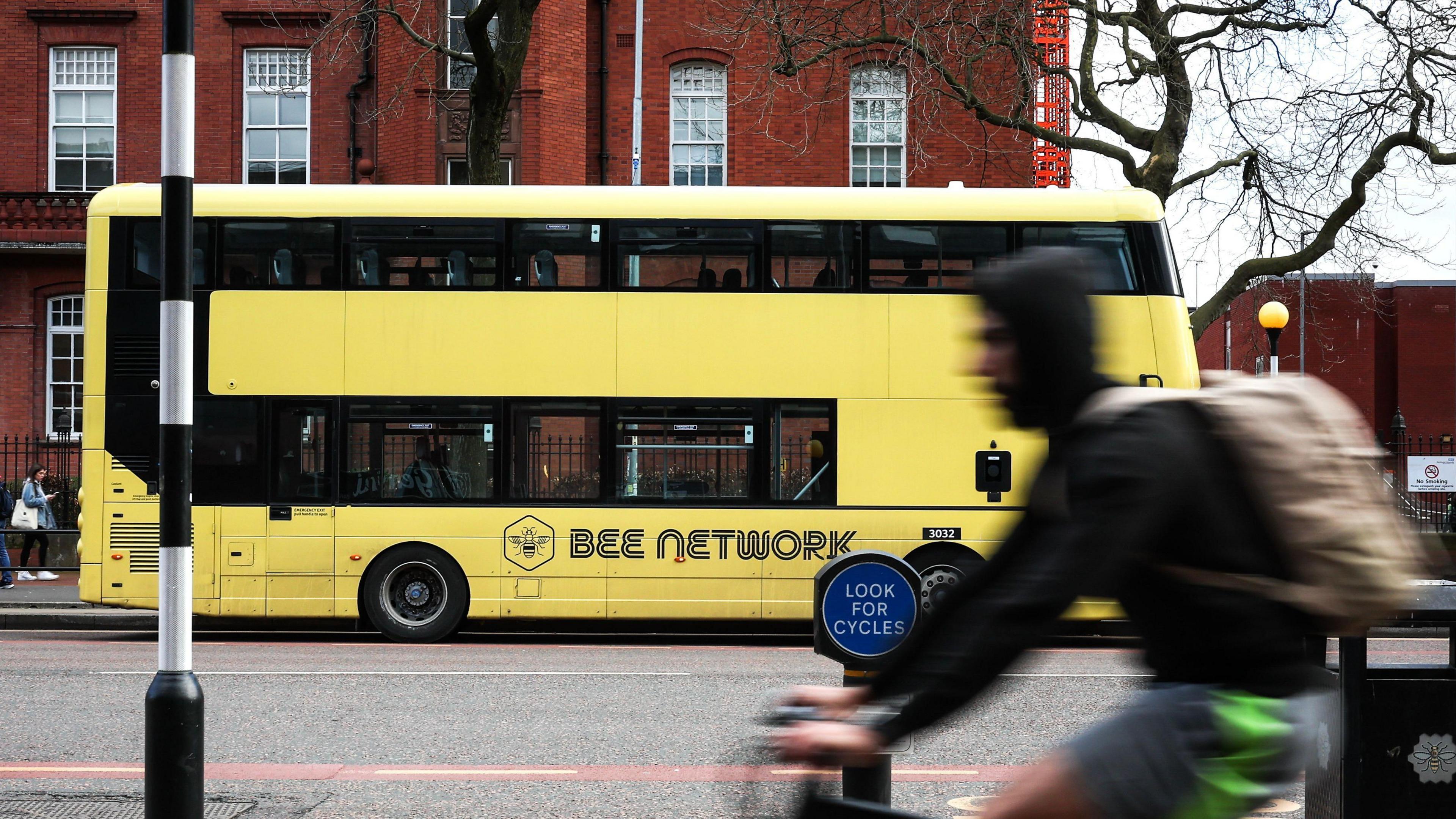
- Published6 December 2024
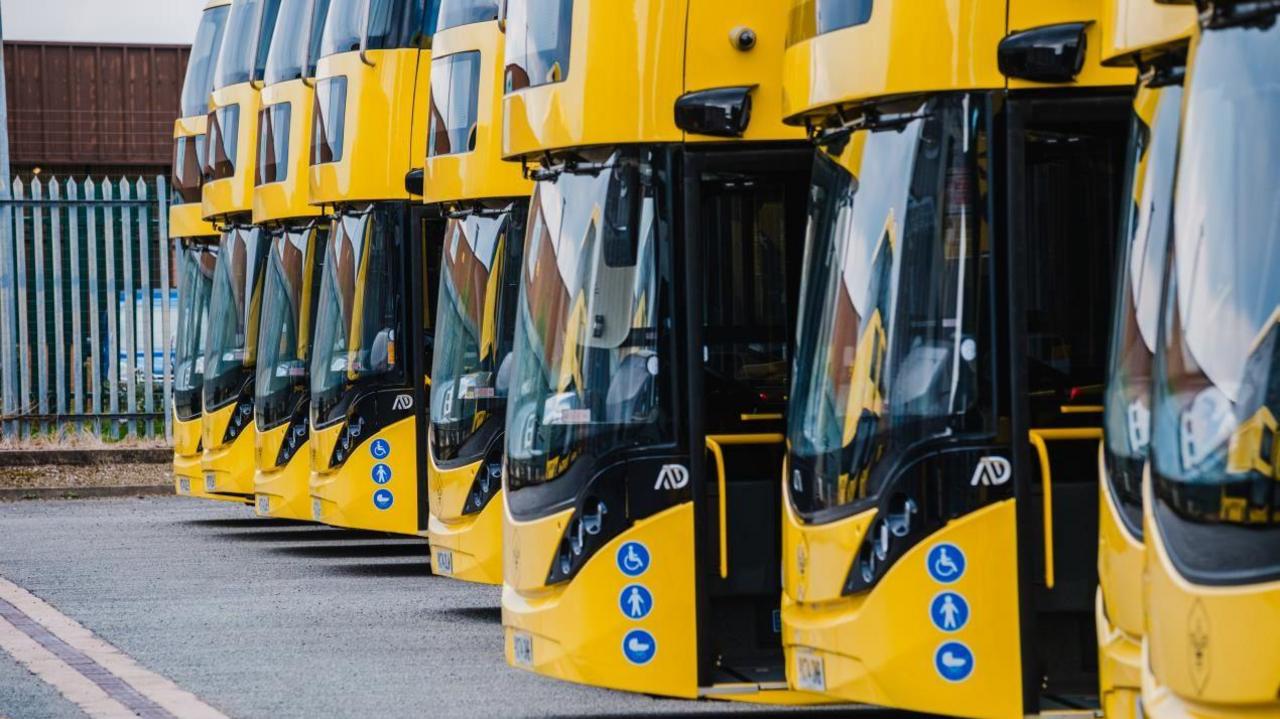
- Published5 December 2024
